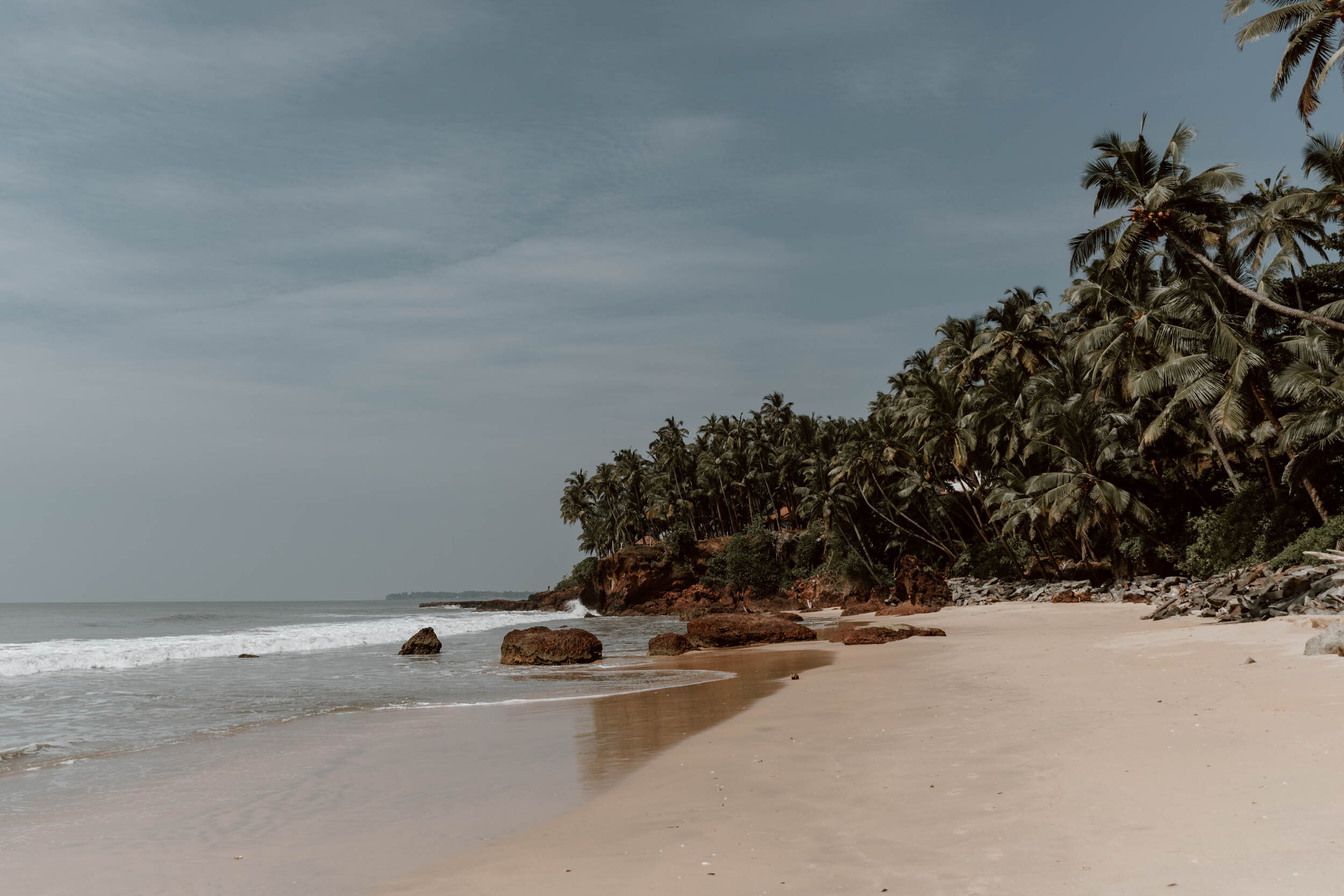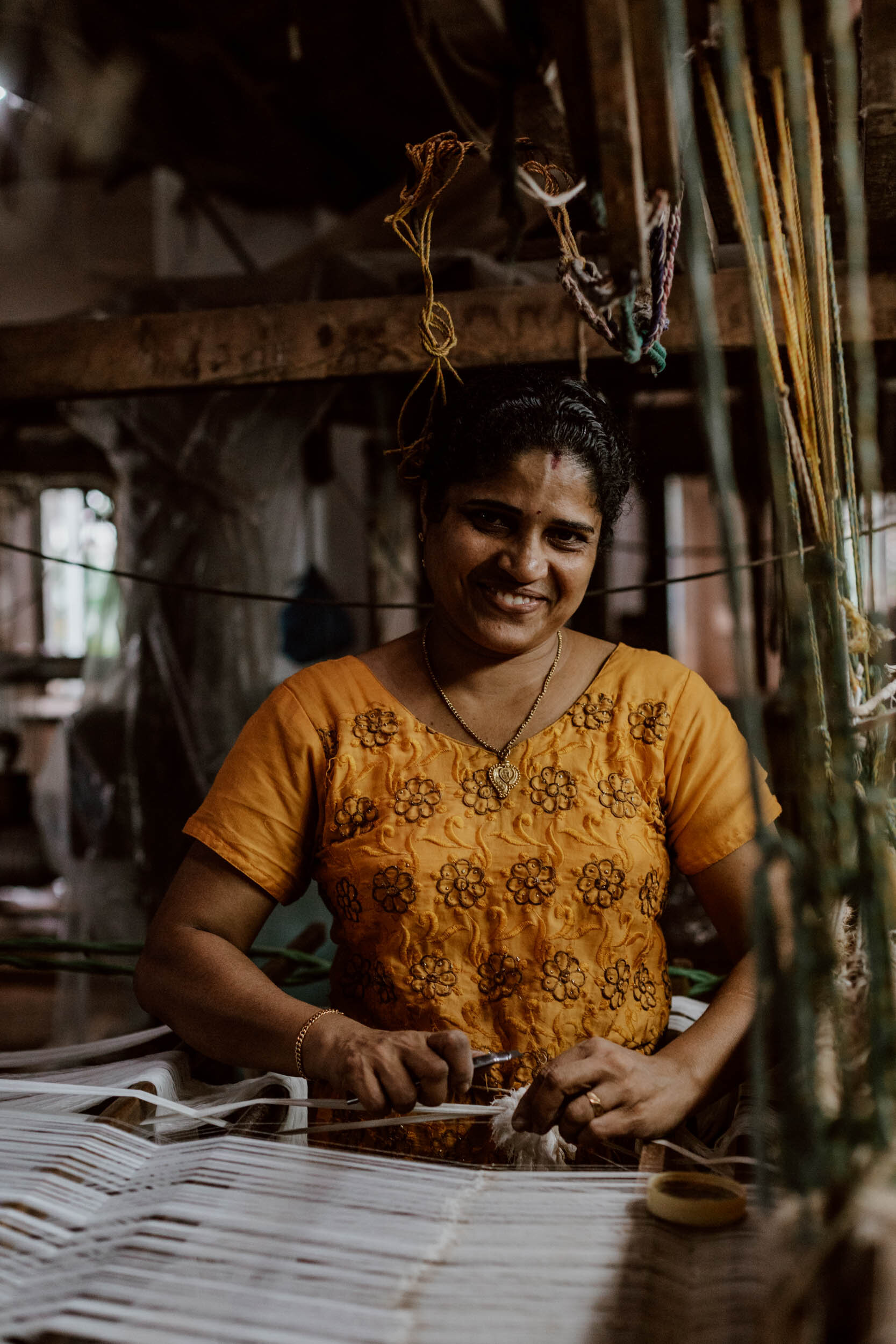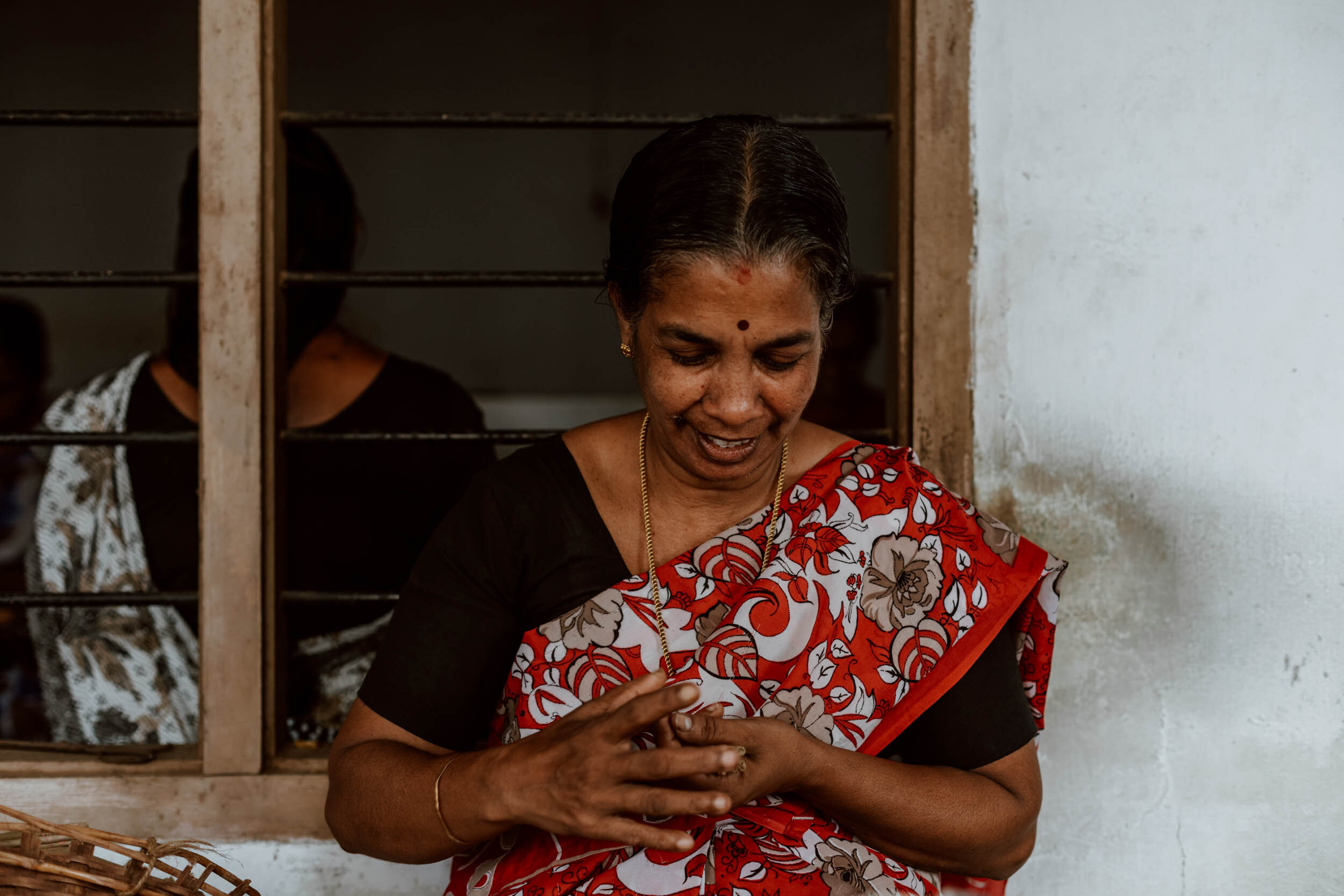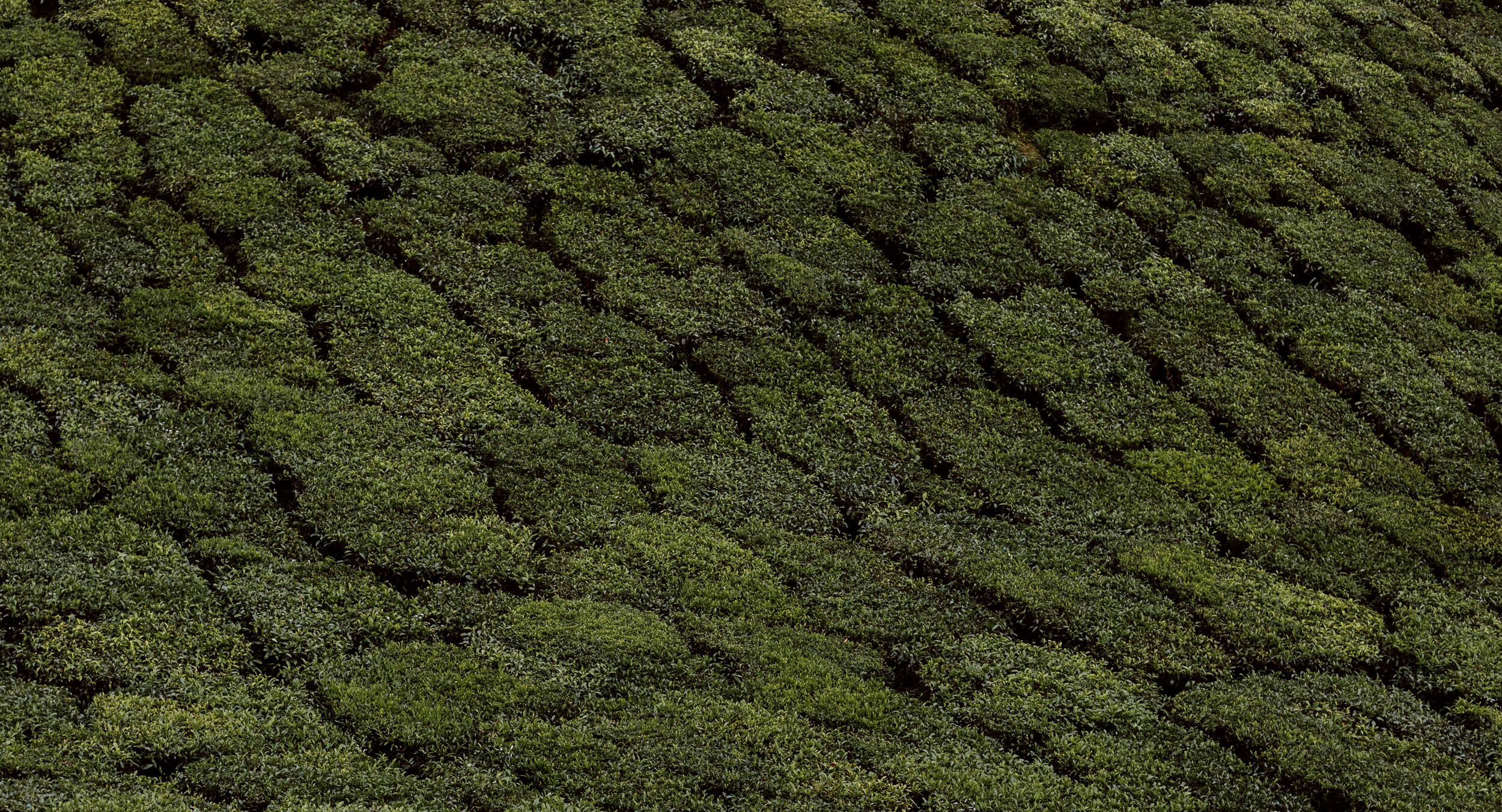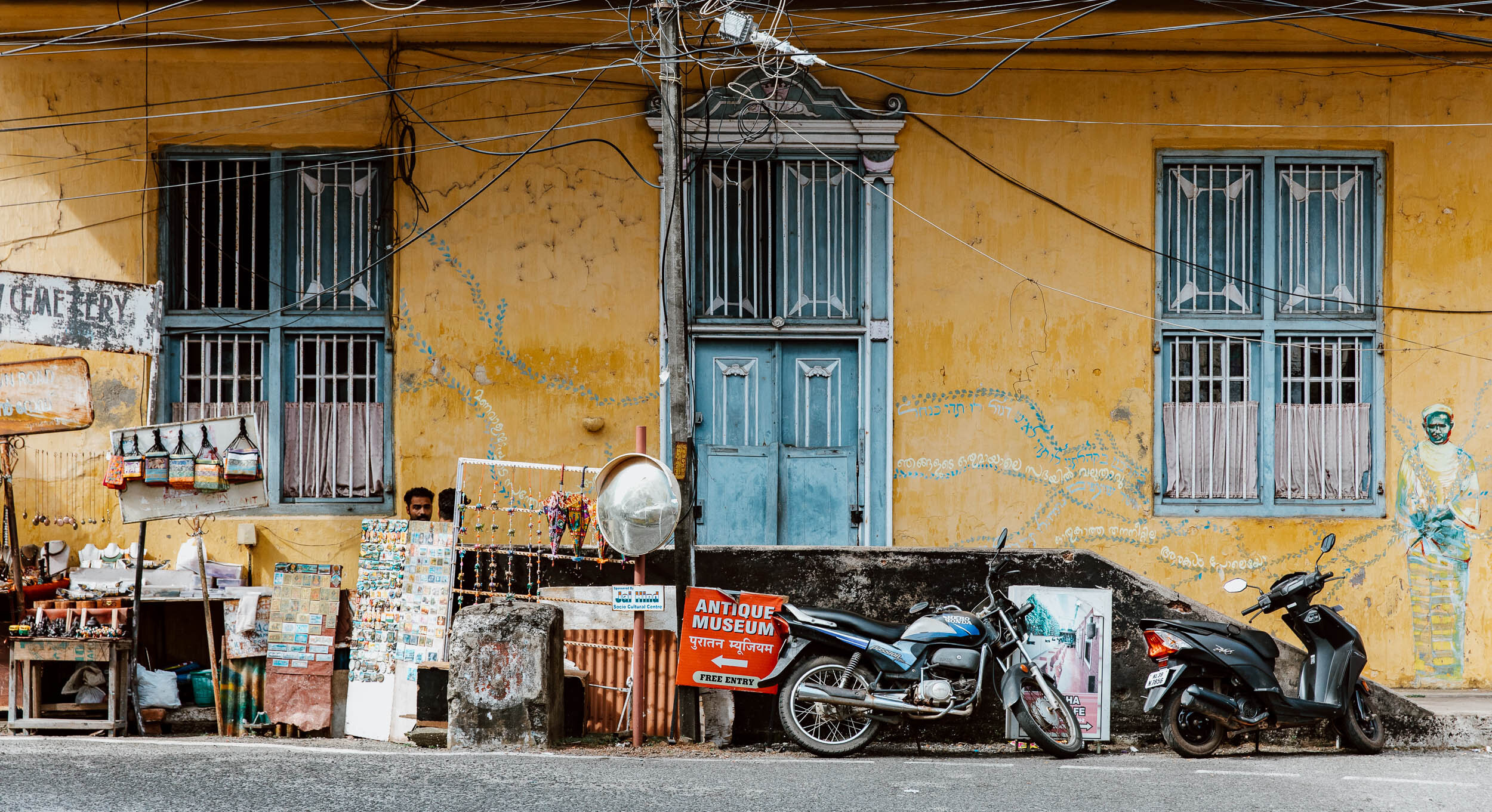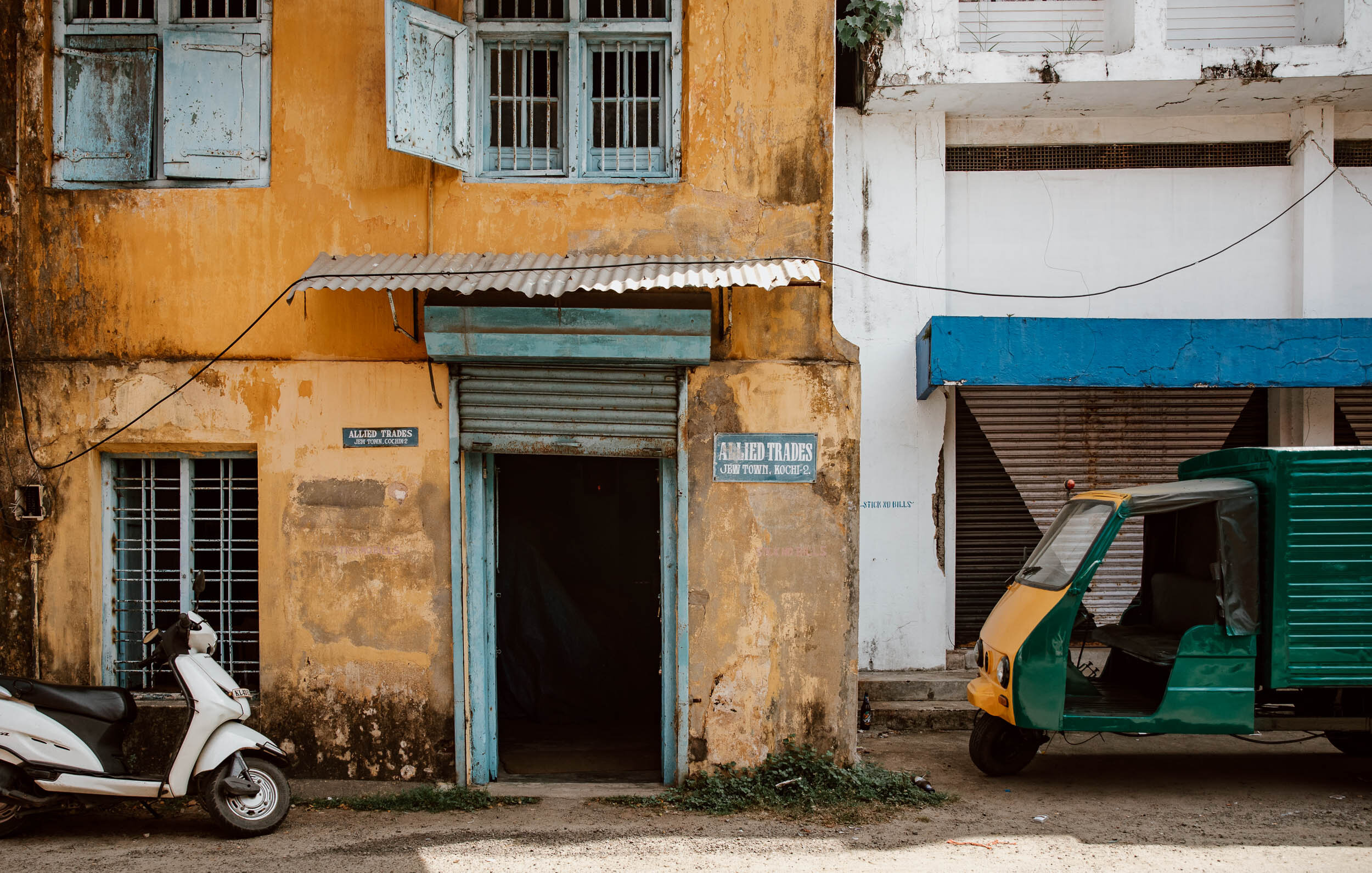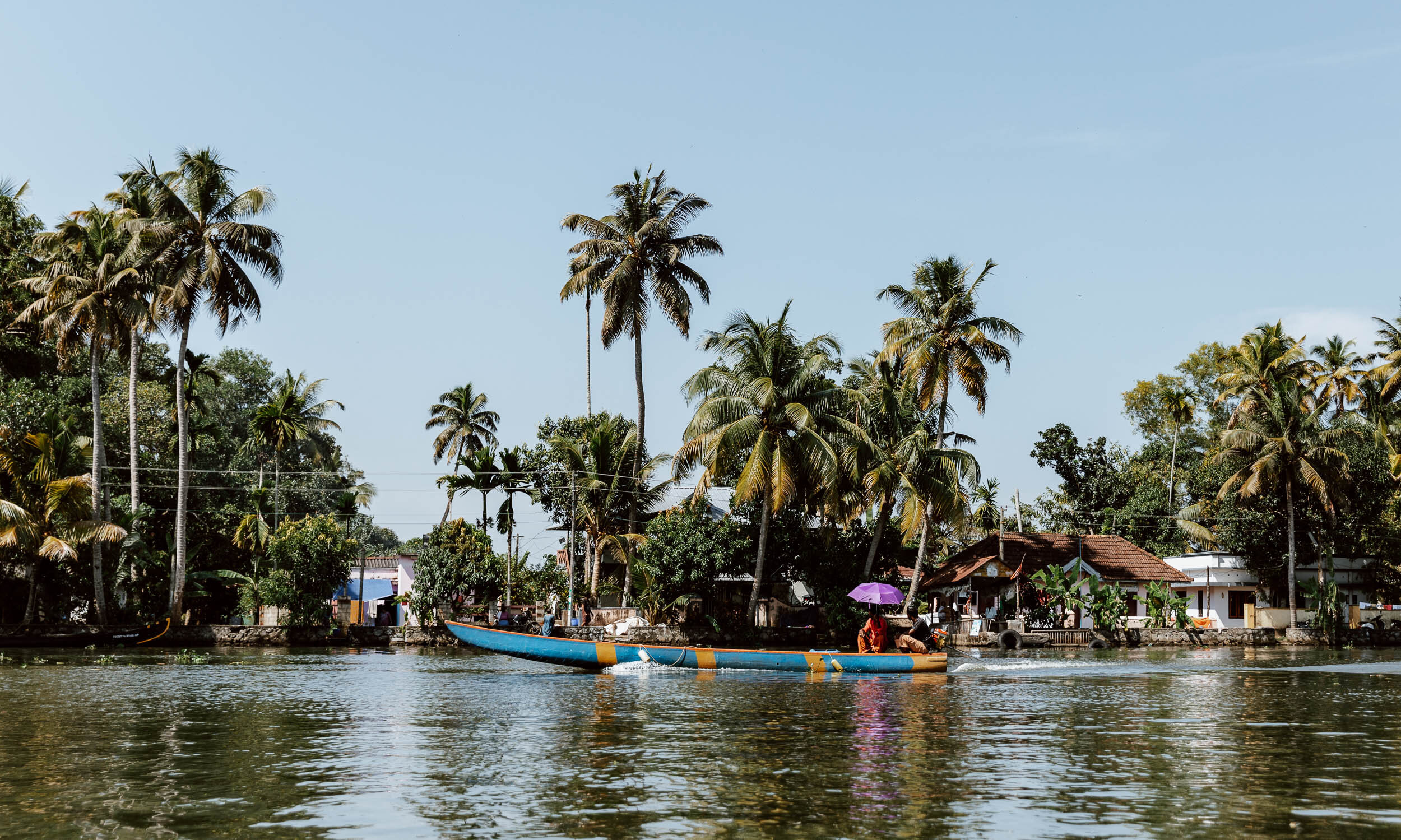It was the sort of place people dream about.
Soft waves lapped at our feet. The gentle breeze whispered through the palm tree fronds. Strange birds sang a different tune.
A beach of bruised gold, hidden away down a dusty road, was ours and ours alone.
We had arrived in Kannur the previous evening, late and under cover of darkness. A much-delayed train journey from Fort Kochi and an auto-rickshaw ride in the moonlight toward the sound of the waves brought us to our guesthouse by the coast. The owner, Bipin, a man with warm-hearted eyes and a gentle manner, had spent a number of years working in Dubai but returned to set up this business where he grew up. We were his only guests, and over several nights he would cook us traditional meals of subtle spice with ingredients from his garden, and share his wisdom as well as his table.
This part of northern Kerala is often overlooked by travellers on their way up to Goa. For those going in the other direction, a rush toward the better-known cliff-sides of Varkala, the houseboats of Alleppey, or the tea-stained hills and swirling mists of Munnar is usually prioritised.
With time on our hands though, the opportunity to go somewhere a little-less visited in this tropical state of 35 million by the Arabian Sea had obvious appeal.
The only thing is, we didn't come to Kerala for paradise.
Yes, we had happily stumbled upon it mere steps from our bedroom door, but this trip to escape the long, dark British winter was never just about seeking out splendid sun-kissed isolation (thank god for that given the storm that lay ahead in 2020).
This trip was about kindness
Within my Scottish family, Kerala has an unbreakable connection with that single word.
My sister - the person whose travels inspired many of my own - suffered a serious accident in Dubai nearly two decades ago, resulting in weeks confined to a hospital bed in a foreign country.
That's something that no traveller and no family wants to deal with. My mother flew out to be by her side, a familiar face in somewhere unfamiliar.
The majority, if not all, the nurses who cared for her there hailed from Kerala. As with Bipin, the education and dedication of Keralans is a sought after commodity in the Middle East, and it is not unusual to meet a number of people on your travels who have worked or have family who continue to live there. The nurses' attentiveness, gentleness, care, and kindness throughout her stay left an indelible impression on both my mother and sister (who I can happily report made a full recovery), and was often brought up at family gatherings (in between those sibling arguments which we were thankfully able to pick right back up from where we left them).
And so, when I said that Emily and I had decided to go to Kerala for our big backpacking trip of 2019, and first taste of India, those nurses and their kindness was the first thing mentioned by both. “The nicest people in the world,” my sister said.
This concerned me.
It takes a lifetime to build a good reputation, but only a moment to ruin it.
We've visited many Latin American cities that feature on lists of 'the world's most dangerous'; places where the average traveller needs only a few days to challenge the preconceived notion of danger and confirm that most people living there really aren't dangerous at all.
However, what if the prevailing stereotype before you go somewhere new is one of virtue, rather than vice?
One where kindness and human connection underpin the experience? Isn't that easier to prove wrong through one unfortunate incident, one conversation gone awry, or ill-tempered exchange with the wrong person at the wrong time?
Back in Kannur, Bipin arranged for a rickshaw to bring us to a couple of places we were curious to visit. The first was a beedi cooperative, the second a textile factory; both were linked by the fact that the human hand was still responsible for much of the work, the craft. We arrived unannounced to both, which aren't actually tourist attractions, but were welcomed without suspicion.
The women who cut, snip, roll, and pile the old cigarettes laughed and mocked gently, babbling away about why we weren't yet married. The men of the textile factory, hard at work in the shafts of golden light, took the time to smile and say hello even though it wasn't required.
It felt like this was a welcome we wouldn’t actually be able to outstay.
Between the two, we sought out a chai on a nondescript road with a nondescript number of little stalls, opposite a seemingly half-abandoned shopping centre. Even though we found the ten-rupee tea served far too sweet for our tastebuds, our little chai stops had become an important ritual for us in Kerala. Aside from the refreshment, there was usually someone to chat to, some people-watching opportunities, or photogenic possibilities as the brew was ceremonially poured from upon high and the saccharine steam would rise from the glass cups below.
On this day, we were joined within the small space of peeling bright blue walls by a holy man, three street cleaners, and a jovial old boy who could have been anything from 70 to 100 years old.
The holy man in orange - who appeared like a hallucination from a dark corner - gave us two small black-spotted bananas and a blessing before silently departing on foot. The street cleaners, two women and men, shared jokes whilst eating their lunch and answering our questions about nothing remarkable; the man offered to buy our teas (we insisted he didn't have to, and are still not sure if this was the culturally right or wrong thing to do for him in such a scenario). The old boy made everyone laugh in a language we couldn't understand, possibly at our expense, but in a way which brought the room together over half an hour rather than made us feel apart.
Steam continued to rise as we sipped from our glasses of sugar mountain sweet tea as hospitality, rather than hostility, confirmed itself as the norm wherever we ventured in Kerala.
After three weeks of travel here, it's a testament to its people that I was able to return to my family with more tales of kindness, rather than anecdotes opposing it, from this corner of southern India.
This article was brought to you in partnership with Kerala Tourism, but based on our own experiences, memories, and thoughts.
For more, take a look at the video below, or read our Kerala travel guides.


